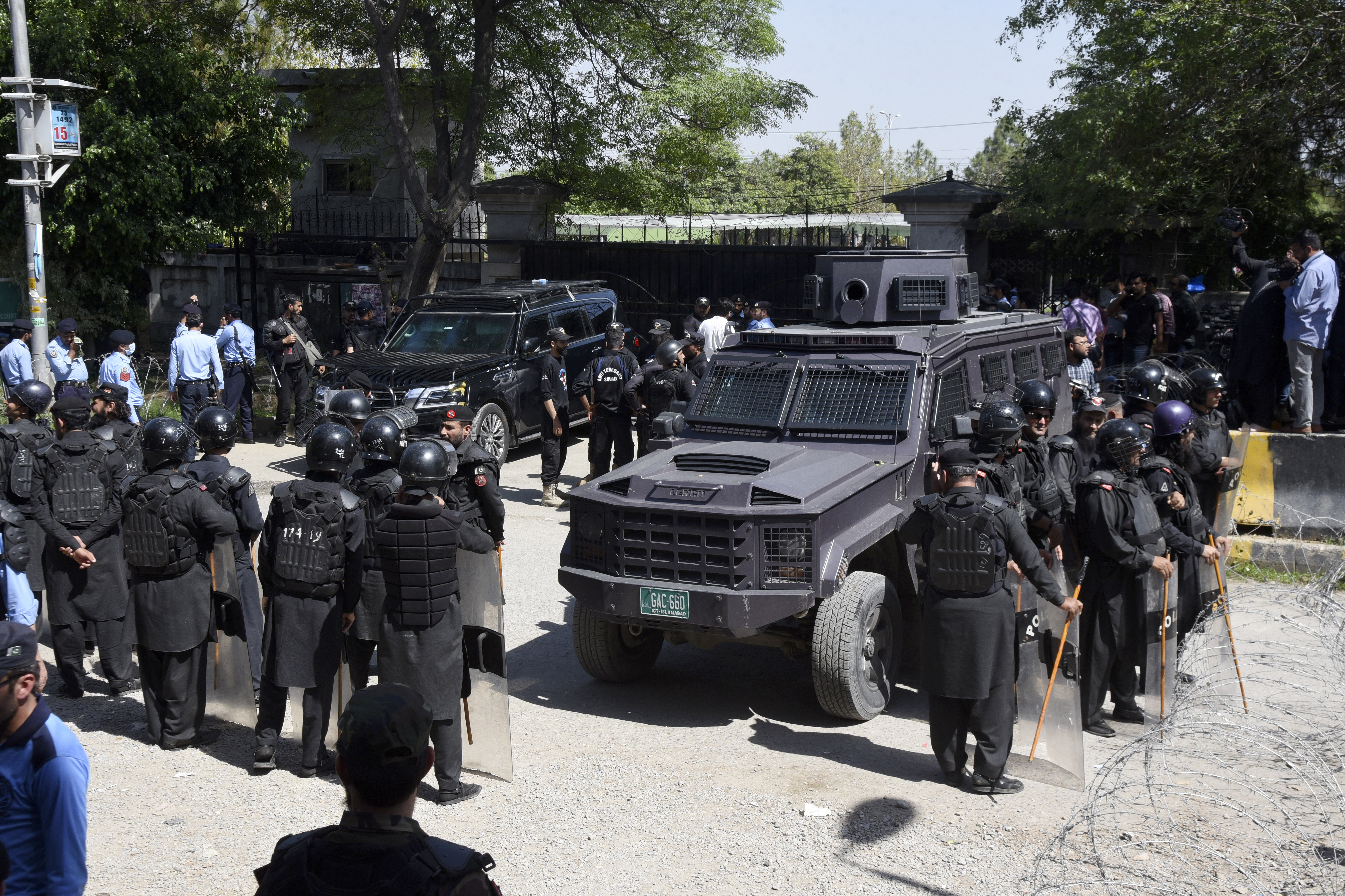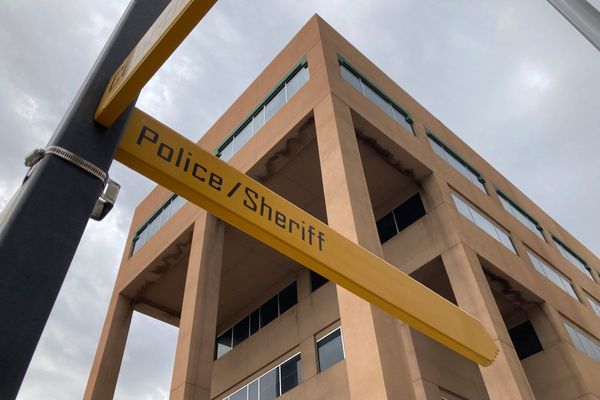
A court in Pakistan has ruled the arrest of former Prime Minister Imran Khan legal as protests erupted across the country after he was taken into custody in the capital Islamabad.
The arrest on Tuesday, as Khan appeared in court to face corruption allegations, is the latest twist in a months-long political crisis and follows several unsuccessful attempts to apprehend the cricketer-turned-politician.
Senior members of the Pakistan Tehreek-e-Insaf (PTI) party said a six-member committee, formed by Khan in March over his fears of being arrested, will gather and decide the next move.
Earlier, authorities said Khan was arrested in connection with corruption involving the Al-Qadir University Trust, headed by the opposition leader and his wife Bushra Bibi.
Interior Minister Rana Sanaullah Khan confirmed that Khan was arrested in a case pursued by the anti-corruption body.
“Imran Khan did not appear despite the notices, NAB [Pakistan’s National Accountability Bureau] has arrested him for damaging the national treasury. No violence was done to them,” the interior minister said in a tweet.
Akbar Nasir Khan, a top police official in Islamabad, told Al Jazeera that NAB had issued an arrest warrant against Khan on May 1 in relation to the case.
PTI leaders have denied the charges levelled by the interior minister, saying Khan had not been issued any arrest warrant before Tuesday.
Khan has been slapped with more than 100 cases – including charges of corruption, “terrorism” and even blasphemy – since he was removed from power last April through a parliamentary no-confidence vote.
The 70-year-old denies the charges as politically motivated. He has also maintained that political parties joined forces with the country’s powerful military to remove him from power.
PTI to file appeal
Video footage on social media shared by the PTI showed party supporters rioting in different cities of the country and setting vehicles and buildings on fire. Clips of PTI supporters vandalising the residence of Corp Commander in Lahore also went viral.
“After seeing what was happening, our leadership had a very serious conversation,” senior PTI official Asad Umar told Al Jazeera.
“We believe some of this violence was preplanned by forces which are working against the PTI. This was part of conspiracy to frame charges against the party and Khan.”
Speaking about the PTI’s course of action, Umar said its legal team will file an appeal in the country’s Supreme Court to challenge the decision by Islamabad High Court which declared Khan’s arrest lawful.
“Besides the appeal, Khan will have to be presented in accountability court where authorities will seek his physical remand, which we will resist with our legal team.”
One killed in protests
Meanwhile, at least one person was killed after protests broke out across the country following Khan’s arrest.
Police fired water cannon and tear gas as thousands of Khan’s supporters took to the streets in Islamabad, Karachi, Lahore, Peshawar and other cities.
Home Minister Meer Zia ullah Langau confirmed the death of a PTI supporter, adding that police officers were also injured in clashes with PTI supporters.
Reporting from Islamabad, Al Jazeera’s Kamal Hyder said “a precarious situation” is developing following Khan’s arrest.
“As the reports of Imran Khan’s arrest went across the country, protesters [took] to the streets and arrests are being made,” Hyder said. “There is considerable anger as far as Imran Khan’s supporters are concerned and the situation is escalating by the hour.”
Hyder added that officials anticipated the protests and have warned the public against participating in them.
“The inspector general of Islamabad police has said that anybody coming out to protest should be arrested.”

Benazir Shah, a Lahore-based political analyst, said the NAB has been used in the past by the military to crack down on politicians.
“The tradition seems to be continuing,” she told Al Jazeera. “Imran Khan’s arrest may have less to do with the corruption charge NAB is probing and more with the allegation Khan levelled against serving military officials earlier this week.”
Muhammad Faisal, a political observer in Islamabad, said that with Khan’s arrest, political instability in the country could become untenable.
“It appears that Pakistan’s multiple crises just got hit by political violence in the most populous province with two leading forces, the PTI and military establishment, locking horns in a violent way,” he told Al Jazeera, adding that “we may not see Khan returning to power” in the long run.
Twitter, YouTube and Facebook blocked
Pakistani authorities also restricted access to Twitter, Facebook and other social media platforms amid mounting violence in the country.
“Additionally, total internet shutdowns have been observed in some regions,” NetBlocks, the global internet monitor, said on Tuesday.
Malahat Obaid, an official spokesperson for the Pakistan Telecommunication Authority (PTA), told Al Jazeera that the regulatory body was instructed by the Ministry of Interior to suspend access to Twitter, YouTube and Facebook.
“We have received a letter from the ministry asking us to issue orders of suspension,” she said.

The case against Khan
The Al-Qadir Trust case against Khan was initiated last year by the current government of Prime Minister Shehbaz Sharif.
The corruption case pertains to the acquisition of land for Al-Qadir Trust, of which Khan and his wife Bushra Bibi are trustees.
The land, which is worth billions of rupees or millions of dollars, was given by Malik Riaz, one of Pakistan’s largest business tycoons, for the launch of an educational institute.
In December 2019, Riaz agreed to hand over assets, including properties, worth $239m to the United Kingdom’s National Crime Agency.
Interior Minister Sanaullah told reporters at a news conference on Tuesday that UK authorities had returned 190 million pounds ($240m) to Pakistan in an investigation related to “dirty money”, which Khan then returned to the businessman instead of keeping it in the national exchequer.
The former prime minister has denied wrongdoing.
Additional reporting by Abid Hussain in Islamabad.







